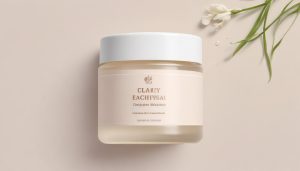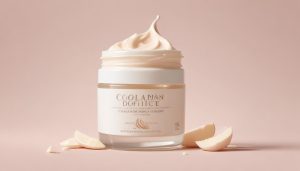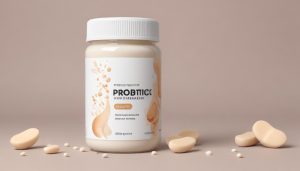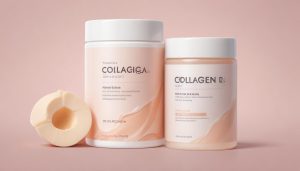You Might Rethink Your Skincare Routine Secrets
Natalie Brooks August 23, 2025
Explore surprising truths about skincare routines that can impact long-term wellness and beauty. Uncover expert-backed tips for healthy, glowing skin, understanding the science behind trending ingredients, and what really matters for lasting results in your daily regimen.
Misconceptions About Skincare Routines
Many believe flawless skin depends solely on expensive products. In reality, a well-structured skincare routine prioritizes consistency and correct product use over price tags. Frequently, people mix too many active ingredients or layer products incorrectly, leading to irritation rather than radiance. Common myths like washing with hot water to “open pores” persist, but such habits may disrupt your skin’s natural barrier. Dermatologists emphasize that understanding your unique skin type and using suitable cleansers and moisturizers are more effective than following viral trends. This evidence-based approach avoids simple mistakes that could hinder your skin’s well-being.
Another widespread misconception is that quick fixes exist for issues like acne, dark spots, or dull texture. The reality is, skin needs time to adapt and repair—even powerful ingredients, such as retinoids or vitamin C serums, require consistent use over weeks or months for visible improvement. Over-exfoliating, drawn by promises of instant smoothness, often causes more problems than it solves. A balanced regimen, using products suitable for your concerns, is strongly recommended by professionals to protect long-term skin health.
Some may assume natural ingredients are always safer than their synthetic counterparts. But even plant-based extracts can irritate sensitive skin if not tested or formulated correctly. Sunscreen resistance remains a major misconception—many only apply protection on sunny days, not realizing that UVA exposure happens all year. Dispelling these myths allows for more personalized, effective, and supportive skincare routines, ultimately promoting your wellness and beauty goals over time.
The Science Behind Popular Skincare Ingredients
Hyaluronic acid has garnered attention for its remarkable ability to hydrate and plump skin. This powerhouse humectant draws moisture into the skin, acting like a sponge and supporting the protective barrier. Ingredients with high molecular weights remain on the surface, delivering temporary softness, while smaller molecules can penetrate for long-lasting hydration (Source: https://www.ncbi.nlm.nih.gov/pmc/articles/PMC3583886/). Using hyaluronic acid in tandem with a gentle moisturizer helps lock in benefits, serving those interested in anti-aging, dewy complexions, and barrier repair.
Niacinamide, a form of vitamin B3, is celebrated for its multitasking benefits—reducing redness, balancing oil production, and minimizing the appearance of large pores. Its anti-inflammatory effects make it a favorite among dermatologists for those combatting both breakouts and uneven skin tone. Vitamin C serums, meanwhile, support collagen synthesis and help fend off environmental pollutants, contributing to brighter, firmer skin. These staples are frequently recommended in foundational skincare routines by the American Academy of Dermatology, reinforcing the importance of well-tested active ingredients (Source: https://www.aad.org/public/everyday-care/skin-care-secrets/routine).
Retinoids, derived from vitamin A, sit at the heart of anti-aging recommendations. They encourage skin renewal, target fine lines, and improve textural concerns. However, gradual introduction is crucial, as these potent actives can provoke dryness or flaking if overused. Sunscreen, often underestimated, remains indispensable in preserving skin health and enhancing the effectiveness of other skincare essentials. Studies consistently show consistent sunscreen use prevents premature aging, making it an absolute must in any wellness and beauty regimen (Source: https://www.cancer.org/healthy/be-safe-in-sun/sunscreen.html).
Building a Routine for Your Skin Type
Customizing your daily skincare starts with recognizing your skin’s needs. Not every product suits all, and addressing oiliness, dryness, or sensitivity means choosing formulations intended for your concerns. For oily skin, lightweight, non-comedogenic gels limit breakouts, whereas richer, cream-based moisturizers can restore comfort to dry or mature complexions. Observing how your skin changes with weather, stress, or hormonal fluctuations aids in refining your approach and selecting the right cleansers, serums, and hydrators.
If you struggle with sensitivity or redness, gentle, fragrance-free options avoid exacerbating irritation. Experts suggest introducing one new product at a time, monitoring the skin’s response for any negative reactions. Patch testing on a small area helps identify possible allergies or intolerances. Establishing a simple, repeatable routine—cleanser, moisturizer, sun protection as a baseline—lays the groundwork for optimal skin wellness, regardless of emerging beauty trends.
Environmental factors also dictate adjustments. Winter often calls for richer creams, while humidity permits lighter lotions or gels. Consulting with a board-certified dermatologist can clarify questions about persistent issues or product selections. With patience and observation, you’ll discover how even small tweaks create a routine that nurtures wellness, strengthens skin resilience, and supports your beauty aspirations through every season.
Trending Treatments and Wellness Practices
Skin wellness now extends beyond topical products. Treatments such as facial massage, microcurrent therapy, and LED light masks are becoming part of holistic routines. These modalities can help boost circulation, encourage collagen production, and even reduce mild inflammation. Incorporating mindfulness—like stress reduction or healthy sleep habits—has shown positive effects on both skin texture and tone, further uniting inner wellness with outward beauty (Source: https://www.ncbi.nlm.nih.gov/pmc/articles/PMC6017965/).
Gut health also plays a surprisingly influential role. Studies suggest a link between diet, the microbiome, and inflammatory skin conditions, such as eczema or acne. Antioxidant-rich foods and prebiotic fibers can support balanced skin from within (Source: https://www.hsph.harvard.edu/nutritionsource/antioxidants/). Functional beverages, mindful eating, and omega-3 intake are frequently recommended for those seeking a radiant complexion without depending solely on topical improvements.
Popular, non-invasive procedures—including gentle peels and hydrafacials—offer mild exfoliation and hydration with little downtime. These options appeal to people seeking refreshed appearance without the risks of aggressive treatments. However, expert consultation is important before making changes or combining methods. Adopting a comprehensive view that values self-care, sleep, movement, and daily choices can elevate your results—blending wellness and beauty for benefits that go beyond the mirror.
Measuring Results and Adjusting Over Time
Tracking progress in skincare is often a slow process. Visible improvement typically emerges over weeks or even months. Professional recommendations highlight documenting your starting point—photos, notes, or simply checking in with how your skin feels. Subtle changes like increased softness or fewer breakouts tell more than chasing overnight miracles. Sticking with consistent sun protection and gentle, effective products preserves gains and builds a foundation for future beauty goals.
If a routine seems stagnant or issues return, it’s safe to carefully adjust one variable at a time. Reassess your cleanser, active percentages, or how often you exfoliate. Sometimes, environmental triggers such as climate, diet, or stress patterns may require cycle adjustments. Leaning on evidence-based advice—whether from a dermatologist or professional organizations—ensures changes remain safe and effective.
Ultimately, skincare success isn’t just about what’s seen in the mirror. It involves education, curiosity, and mindfulness. When routines are guided by science and adjusted thoughtfully, they serve both wellness and beauty, balancing confidence with care for your skin’s evolving needs.
Choosing Reliable Resources for Skincare Information
Not all advice found online is accurate. Dermatologist associations, peer-reviewed journals, and large nonprofit public health organizations are the gold standard for reliable skincare knowledge. Seeking recommendations from medical professionals helps cut through marketing hype and anecdotal testimonials that may mislead.
Publicly accessible educational resources—such as those from the American Academy of Dermatology or the National Institutes of Health—provide updates on ingredient safety, trend evaluation, and common skin symptoms. These sources eliminate the guesswork, helping avoid choices that waste time or money.
Familiarizing yourself with ingredient databases and consumer advocacy organizations further supports healthy decisions. More than ever, informed consumers are empowered to shape a skincare strategy that’s grounded in research and adapted to individual needs. This practical, evidence-driven approach is the cornerstone of lasting wellness and authentic beauty.
References
1. Draelos, Z. D. (2012). The Science Behind Skin Care. https://www.ncbi.nlm.nih.gov/pmc/articles/PMC3583886/
2. American Academy of Dermatology. (2023). Skin Care Secrets. https://www.aad.org/public/everyday-care/skin-care-secrets/routine
3. American Cancer Society. (2022). How to Protect Your Skin from the Sun. https://www.cancer.org/healthy/be-safe-in-sun/sunscreen.html
4. Bowe, W.P., Joshi, S.S., & Shalita, A.R. (2014). Diet and Skin: Food for Thought. https://www.hsph.harvard.edu/nutritionsource/antioxidants/
5. Goldberg, L. J., & Lenzy, Y. M. (2018). Skin Care in the 21st Century: Holistic Approaches. https://www.ncbi.nlm.nih.gov/pmc/articles/PMC6017965/
6. National Institutes of Health. (2024). Skin Care and Aging. https://www.nia.nih.gov/health/skin-care-and-aging







